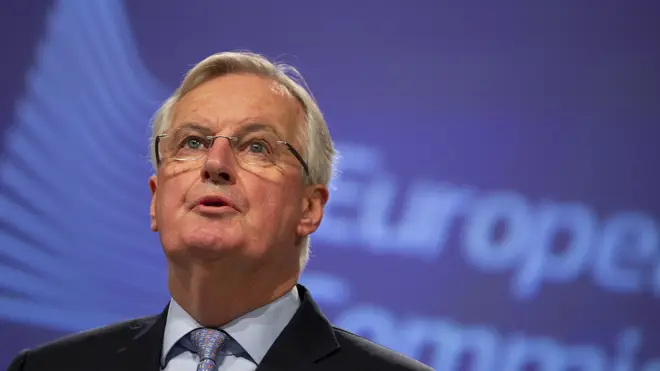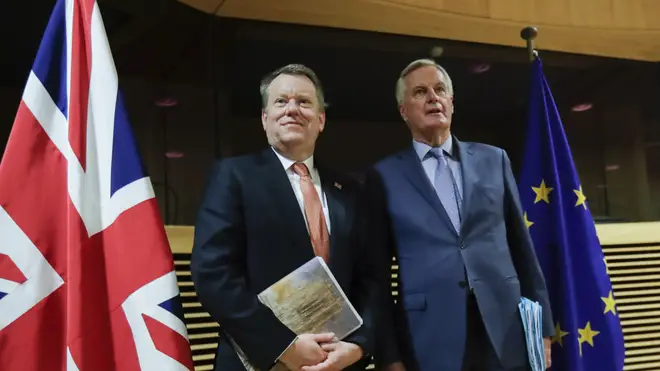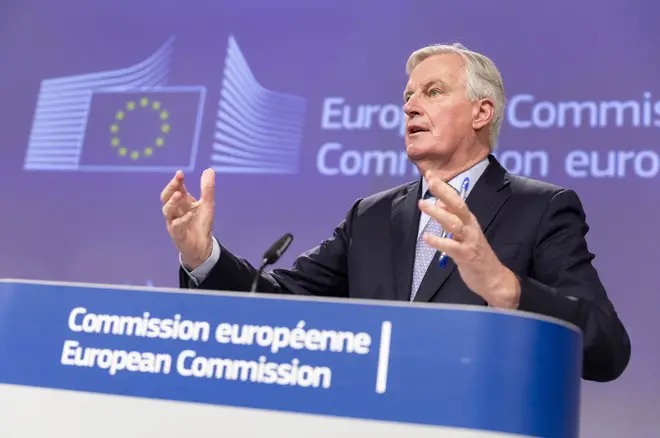
Matthew Wright 7am - 10am
5 March 2020, 21:43

Michel Barnier has warned of "very serious divergences" with the UK following the first round of post-Brexit trade talks.
The EU's chief negotiator did, however, say the discussions had been "constructive" and he believes the two sides "can reach a good agreement."
Mr Barnier was speaking at the end of day four of talks with the UK's lead negotiator David Frost.
The 69-year-old French politician said that once an agreement was reached there could be no going back on commitments.
UK Prime Minister Boris Johnson has previously said he wants a comprehensive deal laid out by the end of the transition period on the last day of 2020. He has also ruled out any extension.
Mr Barnier said that the talks were "challenging" but added that this was "natural" at this stage of the negotiations.

Some of the sticking points between the two sides include fishing rights, criminal justice issues and the extent to which the UK was prepared to maintain a "level playing field" with EU regulations.
"To be completely frank with you... there are many divergences and they are very serious divergences. Which is probably quite natural after the first round of negotiations," Mr Barnier said.
"Our differences come as no surprise, especially after only one round of negotiations, but some are very, very difficult.
"However, I continue to believe that we can reach a good agreement for both sides."
The EU's chief negotiator said that he had sought and received assurances from Mr Frost that Britain would respect all of its legal undertakings in the Withdrawal Agreement.
He added that Brussels would be monitoring "very closely" the UK's implementation of the terms in relation to the border between Northern Ireland and the Republic.
"This a condition for the trust that we need now to build our future partnership on a good basis," he said.
"On the Ireland protocol ... it is about implementing a quite specific agreement and doing that together in a pragmatic and operational way. We will follow the implementation very closely."
On fisheries, Mr Barnier again rejected UK proposals for annual negotiations on quotas, saying EU fishermen needed "predictability", and made clear that agreement on the issue had to be part of any wider deal.
"A balanced solution on fisheries should be part of the trade agreement - if we want a trade agreement," he said.
Mr Barnier said the British negotiators had also made clear they did not want to formally commit to the continued implementation of the European Convention on Human Rights in the UK.
A UK Government spokesman welcomed the "constructive tone" on both sides but warned that the negotiations would be "tough."
"Following detailed discussions, we now have a good idea where both parties are coming from," the spokesman said.
"The UK team made clear that, on 1 January 2021, we would regain our legal and economic independence - and that the future relationship must reflect that fact."

British officials said that on both the issue of fisheries and the "level playing fields", the EU position went "far beyond precedent."
Mr Barnier warned that failure to get a deal by the end of the year would have "lots of consequences" - unless there was an extension to the transition period - with both sides required to introduce customs checks.
"That has a lot of consequences that we have to prepare for. It will not be business as usual. It will be very, very different," he said.
"The definitive changes which will happen because of the decision of the United Kingdom and the difficulties which will be linked to that, my impression is they are very often underestimated."
Talks are set to resume in London later this month, with measures being put in place to ensure they continue in spite of the coronavirus outbreak.